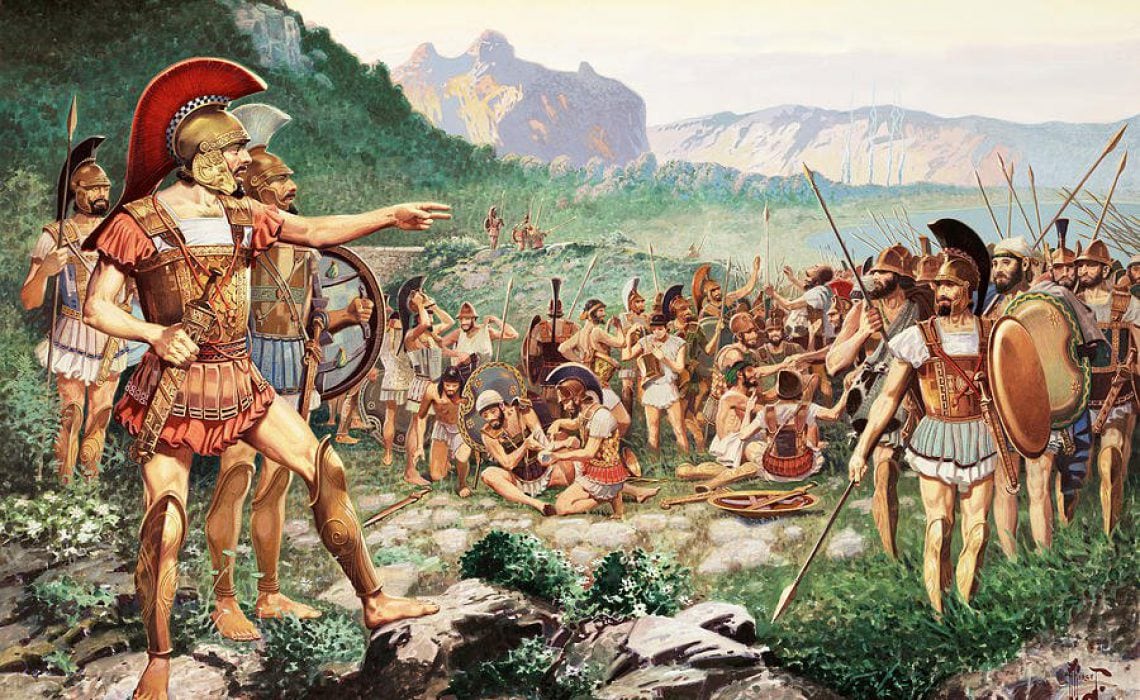Jelikož se za chvíli šoupe, myslím s časem, co se podívat jak tuto událost zfilmoval Zack Snyder. 300: Bitva u Thermopyl.
300: Vzestup říše je také fajn film.
https://www.csfd.cz/film/221337-300-bitva-u-thermopyl/prehled/
https://www.csfd.cz/film/255445-300-vzestup-rise/prehled/
23.9. 480 Battle of Thermopylae
Categories: Years of war and revolution , Calendar

During the legendary Battle of Thermopylae in 480 BC, part of the Greek city-states and the million-strong army of the Persian king Xerxes clashed. The latter eventually defeated the enemy thanks to a traitor who discovered a mountain path.
King Xerxes of Persia succeeded his father Darius in 486 BC. Determined to expand his empire and avenge his defeat at Marathon, he set in motion preparations for the conquest of Greece. Faced with this new threat, many Greek cities surrendered and accepted Persian sovereignty. However, Athens and the cities of the Peloponnesian peninsula, including Sparta, remained defiant.
By 480, Xerxes' preparations were complete. He led his army across the Helespont (the strait between mainland Asia and Europe) and then down through northern Greece, while being escorted by his fleet sailing down the coast.
The Athenian ruler Themistocles persuaded his Peloponnesian allies to oppose the Persians on land and sea north of Athens. "Troops of hoplites and light troops led by the Spartan king Leonidas took up position at Thermopylae - a narrow gorge between Mount Kallidromo and the sea - while the Athenian fleet of triremes waited near the island of Euboia," writes R. G. Grant in his book Battles.
The Persian naval forces, plagued by storms and severely weakened while sailing along the coast, fought a cautious battle with the Greeks at Artemisium, the outcome of which was indecisive. On land, however, the Greeks faced the full strength of the Persian army. "Xerxes demanded that the Spartans lay down their arms, whereupon King Leonidasreplied with two words: Molón labe (Come for them)," writes Dean Karnazes in My Journey to Sparta.
Xerxes' messenger threatened that if the Greeks did not surrender, the Persians would attack them with all their military might. He said that a vast number of Persian arrows would blot out the sun, whereupon the Spartan warrior Diekenes replied approvingly? "So much the better, at least we shall fight in the shade." For three days the numerically weaker troops of Leonidas held the pass. The narrow battlefield made it impossible for the Persians to take advantage of their numerical superiority.
In man-to-man combat, the Greeks were a difficult opponent even for the Immortals, Xerxes' elite royal guard. In the end, however, the Greeks were defeated after the traitor revealed to Xerxes the mountain road that led past Thermopylae. When the Immortals then appeared behind the Greek positions, the fate of the Greeks was sealed. Leónidas and his 300 Spartan hoplites, along with a thousand or more Greek soldiers, fought bravely to their last breath.
Sources: R. G. Grant, Battles: 5000 Years of Warfare, Dean Karnazes, My Journey to Sparta, https://stmuhistorymedia.org/
The article is included in categories:



